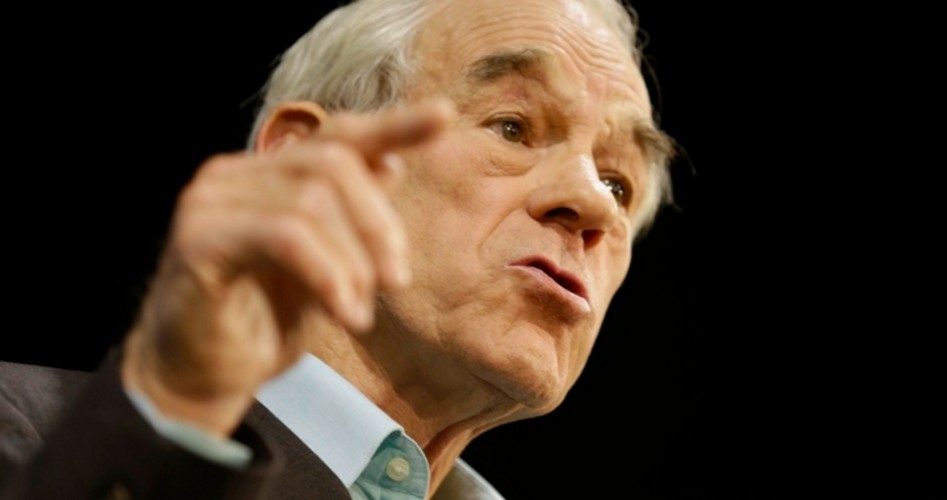
The Internal Revenue Service is demanding that Ron Paul’s Campaign for Liberty organization hand over its list of contributors, and has fined the non-profit organization $12,900 for failing to give names on its annual IRS filing.
“There is no legitimate reason for the IRS to know who donates to Campaign for Liberty,” the organization’s Communications Director Megan Stiles told the Washington Examiner in an e-mail April 15. “We believe the First Amendment is on our side as evidenced by cases such as NAACP v. Alabama and International Union UAW v. National Right to Work. Many 501(c)(4) organizations protect the privacy of their donors in the very same way as Campaign for Liberty. For some reason the IRS has now chosen to single out Campaign for Liberty for special attention. We plan to fight this all the way.”
Non-profit 501(c)4 organizations like Campaign for Liberty are required to spend a majority of their funds for “social welfare” purposes rather than only political purposes. The Campaign for Liberty is the largest visible legacy of Ron Paul’s 2008 and 2012 presidential campaigns, and the organization has indeed focused upon issue-based activism, such as support for an audit of the Federal Reserve System, and grass-roots organization. The organization has full-time staff in most states and claims some 600,000 members.
While the political Left has campaigned against anonymous donations to political organizations, the Campaign for Liberty has countered that anonymous political lobbying in America goes all the way back to The Federalist Papers. Indeed, James Madison and Alexander Hamilton not only anonymously argued in favor of adoption of the U.S. Constitution as allies via The Federalist Papers, they also argued anonymously as political enemies under pseudonyms such as Helvidius, Pacificus, and Americanus over George Washington’s “neutrality proclamation” after the First Amendment was adopted.
The Campaign for Liberty is particularly concerned that the roster of donors would be leaked to the press, and there are multiple precedents in recent years of the IRS leaking the documents of conservative political operatives. Tea Party acolyte and former U.S. Senate candidate from Maryland Christine O’Donnell had her income tax return leaked to the press within hours of filing papers for her 2010 candidacy. And the National Organization for Marriage had its 2008 donor list leaked by the IRS to the homosexual lobby Human Rights Campaign. NOM’s President Brian Brown said in a November 18, 2013 press release that “HRC published on its website the private information from NOM’s 2008 Form 990, which is a felony under federal law and which is the subject of current Congressional investigations. NOM has also filed a federal lawsuit against the IRS to find out who in the IRS illegally released to the HRC our confidential donor information.” The organization is suing the IRS, but after some two years of hearings and delays, the IRS has yet to discipline or even identify the perpetrator of the felony.
Many on the political Left have campaigned to end what they call the “loophole” to end anonymous political donations to 501(c)4 organizations, and have labeled anonymous political efforts “secret money” or “dark money.” And they have pooh-poohed the inconvenience billionaires will experience when their names are mentioned in the press for their massive donations.
But the reality is that the ban on anonymous donations is not to protect the wealthy and powerful, but small donors who stand up for traditional values and limited government. Indeed, donors to the 2008 Proposition 8 effort in California were posted to opposition websites and faced a raft of threats and intimidation from opponents of the measure, from putting pressure on employers to fire supporters of the measure, to vandalism to death threats. “I cannot endorse a view of the First Amendment that subjects citizens of this Nation to death threats, ruined careers, damaged or defaced property, or pre-emptive and threatening warning letters as the price for engaging ‘core political speech,’ the ‘primary object of First Amendment protection,'” Justice Clarence Thomas noted in his concurring opinion in the 2010 Citizens United decision. “Some opponents of Proposition 8 compiled this information and created Web sites with maps showing the locations of homes or businesses of Proposition 8 supporters. Many supporters (or their customers) suffered property damage, or threats of physical violence or death, as a result.”
The Campaign for Liberty is hoping the courts will back its efforts, and they have a powerful U.S. Supreme Court decision in their favor: NAACP v. Alabama (1957). In that case, the NAACP protested a demand by the Alabama attorney general that the organization turn over its donor lists in the wake of the Montgomery Bus Boycott. The Supreme Court unanimously said that to do so would expose donors to credible death threats from the Ku Klux Klan and other white supremacists who opposed integration of public facilities.
Photo of Ron Paul: AP Images



